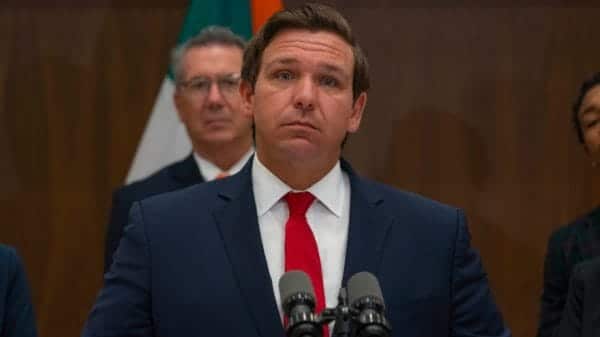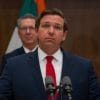Australia’s decision to deny constitutional recognition to its First Peoples has raised concerns among analysts, who suggest it could pave the way for a more divisive, “Trump-style” brand of politics during the upcoming national election.
Additionally, they believe this situation is compelling Prime Minister Anthony Albanese to redirect his focus towards addressing cost-of-living issues.
Challenges and Opportunities for Political Leaders
Analysts have suggested that Prime Minister Albanese may have misconstrued public sentiment when he assumed responsibility for the outcome of the referendum. The referendum sought to establish an Indigenous advisory body, and the only region that voted in favor of acknowledging Aboriginal and Torres Strait Islander people was the national capital. In contrast, the majority of Australians in the remaining states and territories, exceeding 60%, opposed the proposed constitutional amendment. This divergence in voting patterns highlights the varying perspectives on this issue across the nation.
He respects the decision and is determined to find a different approach. However, some experts believe that the conservative opposition has become more confident. This confidence has grown after successfully opposing a critical vote.
The referendum defeat marks a notable setback for Prime Minister Albanese. He has been a staunch advocate for achieving more significant equity for First Nations peoples. An expert in political history and leadership from the University of Canberra named Chris Wallace emphasized this matter. In the aftermath of this electoral loss, it is anticipated that Albanese will pivot his priorities toward tackling the pressing issue of the high cost of living, a challenge that might have contributed to the limited success of the “Yes” vote in the referendum. This shift in focus reflects the evolving political landscape and the need to address critical economic concerns facing the nation.
Peter Dutton’s Perspective on the Referendum:
The leader of the opposition party, Peter Dutton, has characterized the recent referendum as the “prime minister’s referendum.” He indicated that his conservative Liberal party will shift its focus toward crafting policies for the upcoming national election in 2025.
Dutton, in contrast to the majority vote, expressed his disagreement with the referendum outcome. Some believe that his opposition was a strategic move to bolster his standing in the political arena and showcase his campaigning skills. A professor at the Australian National University named Mark Kenny recognized Dutton as particularly adept at this type of political maneuvering. Drawing inspiration from the tactics of figures like Donald Trump and Nigel Farage, Dutton is strategically targeting the blue-collar Labor base in suburban and regional areas.
Many Australians are growing increasingly concerned about the potential for further political division in their country. There is a prevailing worry that Australia may follow a trajectory similar to the political polarization witnessed in the United States and the United Kingdom.
Kenny’s Analysis of Prime Minister Albanese’s Error in Judgment
Kenny believes Prime Minister Albanese’s decision to hold a referendum without the support of all parties was a significant mistake.
A year ago, the national party and the Liberal coalition members had already disagreed with this decision.
Kenny’s affiliation with the university’s Australian Studies Institute emphasized that no referendum in Australia has succeeded without bipartisan backing.
Before his election in 1996, Albanese witnessed the failure of the 1999 referendum for Australia to transition into a republic. People saw him as having misread the public sentiment quite dramatically despite his incredible experience as a lawmaker.
In the recent election, Moderate voters left the Liberal party and supported independent candidates called “Teal” in essential city areas. This transition resulted in the establishment of a Labor government after a nine-year hiatus.
Review of the Referendum
All vote results indicated that residents in the suburbs of New South Wales and Victoria voted against the referendum. In contrast, the inner-city seats that had switched from Liberal to independent candidates in the previous election voted “Yes.”
Kenny suggested that Dutton may not make efforts to win back these “Teal” seats in the upcoming election. Furthermore, he also noted that almost all of Labor’s seats in rural and outer-suburban working-class areas voted “No.”
From the National party, “Yes” voters, calling them “privileged, educated Australians living in rich areas,” was criticized by Bridget McKenzie.
Former Australian Prime Minister Tony Abbott commended Peter Dutton’s decision to oppose the referendum. He described it as “brave” during a conversation with Sky News.
Additionally, we expect Abbott to join the board of Fox Corp in the near future. Abbott will join Fox Corp’s board soon. He clarified that the referendum’s rejection was about a government system change, not rejecting Aboriginal people.
Impact of Dutton’s Strategies and the Need for Leadership Change
Simon Banks, who is the head of the government relations firm Hawker Britton and previously served as the chief of staff to three Labor leaders, doesn’t expect any calls for Prime Minister Albanese to resign. Simon Banks, the managing director of the government relations company Hawker Britton and former chief of staff to three Labor leaders, does not anticipate any demands for Prime Minister Albanese to step down. Instead, he believes that Peter Dutton is facing a significant political challenge.
Banks argues that Dutton’s strategies have posed challenges for the Liberal Party in regaining the so-called “Teal” seats, signifying a notable shift in the political landscape. In addition, national opinion polls suggest that the Labor Party has yet to suffer a significant negative electoral impact as a consequence of the recent referendum.
The latest Newspoll, released on Friday, reveals that the Labor Party maintains a two-point lead over their 2022 election results. Albanese enjoys widespread support, with approximately 50% of voters favoring him as prime minister. In contrast, Dutton only commands 30% of support.
Chris Wallace pointed out that the Liberal Party’s “wrecking ball campaign” was relatively straightforward to execute. Nevertheless, to secure victory in the next election, they may need to consider replacing Dutton with a leader who is more likable and appealing to voters.













